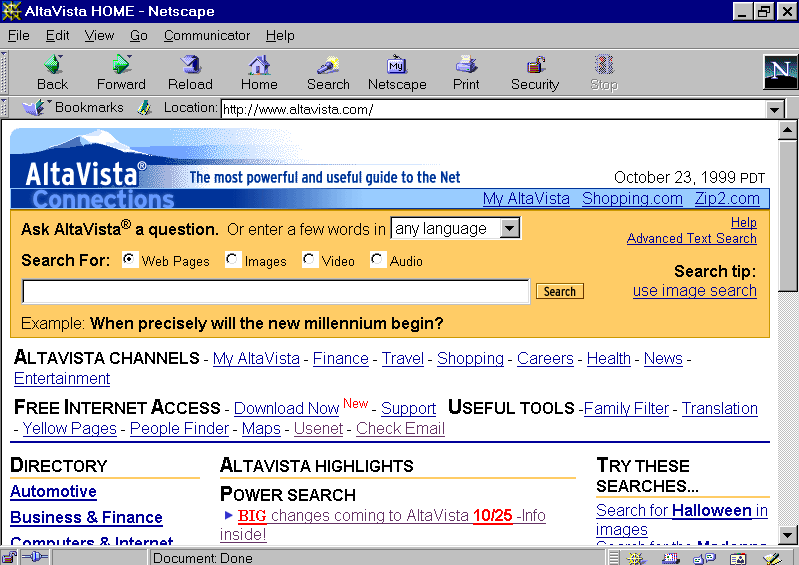QUICK INTRODUCTION
If you really care about privacy and anonymity on Internet it’s not really possible or easy to achieve it. We’d have to stop using social platforms (or create dummy accounts just for that), stop using Google or products from the big boys on the net, including computers, and switch to Linux. What I can recommend to mitigate the damage is what I did:
- don’t use Google for searches but Duckduckgo – it’s super easy to set it on browsers and smartphones as the default search engine
- use Brave or Firefox as browser on both computer and cell phone
- Switch to an encrypted email service such as ProtonMail or Tutanota.
- when possible use Signal instead of Whatsapp for messaging
- Use a password manager like Bitwarden to use complex and therefore more secure passwords
Free Internet… is it even be possible?
Internet was born free. Sure, at the beginning it was a network between military institutions (Arpanet), ok; but then university teachers and researchers used it to exchange data, ideas, projects, discoveries. So it became Internet and it was not for everyone. But the free scientific, philosophical and technological thought passed through that network. Then, at CERN in Geneva, someone thought of making the Internet’s crude text pages and the use of keyboard commands more accessible. And, a bit like Apple did with Macintosh and the first graphic interfaces, the World Wide Web (WWW) was born, accessible through a software called Browser (the first one was Mosaic, practically a prototype). The hypertext pages accessible with http:// (Hyper Text Transfer Protocol) became web pages accessible with http://www. This same site would have had an IP (Internet Protocol) address similar to http://62.149.140.100 instead of https://www.pasqualerobustini.com because the DNS (Domain Name Server) you use through your connection provider stores a table of all existing websites and the IP numbers corresponding to them: the connection between the Internet and the World Wide Web.
When I connected to the Internet for the first time there was already the World Wide Web and to view it you needed the browser Netscape Navigator, the evolution of Mosaic. There was a search engine, called Altavista, later incorporated by Yahoo. I still remember that, as a good structural geologist, the first word I looked for was “tectonics”. I was inundated with a wealth of interesting information. My eyes sparkled. It was like having access to a worldwide encyclopedia.
Even email seemed like a miracle. In the beginning you had Italian addresses from local providers. Mail was downloaded with email software. At the time, Eudora was all the rage. Then I discovered Hotmail, which was a site where you could access your mail online, from your browser, wherever you were. After a short time Microsoft bought it to become Windows Live, MSN and then Outlook. Someone told me about Gmail, mail from the powerful new search engine. I ended up using Gmail as a collector of all my mail, work, banking, personal…. everything. I fell for it with all my feet! A few years later, on my way to work I heard on the radio the news that Microsoft had paid a lot of money to buy a small stake in a new site called Facebook. Intrigued, I went to see it and registered to do so. I found a German friend of mine among the contacts but no activity. For years I was in doubt about what it was and what it was for. Then everything changed and social networking became the most popular part of the Internet.
 From a useful Internet for communicating ideas and sharing knowledge, we moved to an Internet for showing off and having a say without any shame. The Internet had become a dangerous place, where disinformation traveled fast as well as hatred and racism. It had also become a place for scams, a place where they could sell you a “package” or steal your digital identity and even take your money. All different.
From a useful Internet for communicating ideas and sharing knowledge, we moved to an Internet for showing off and having a say without any shame. The Internet had become a dangerous place, where disinformation traveled fast as well as hatred and racism. It had also become a place for scams, a place where they could sell you a “package” or steal your digital identity and even take your money. All different.

